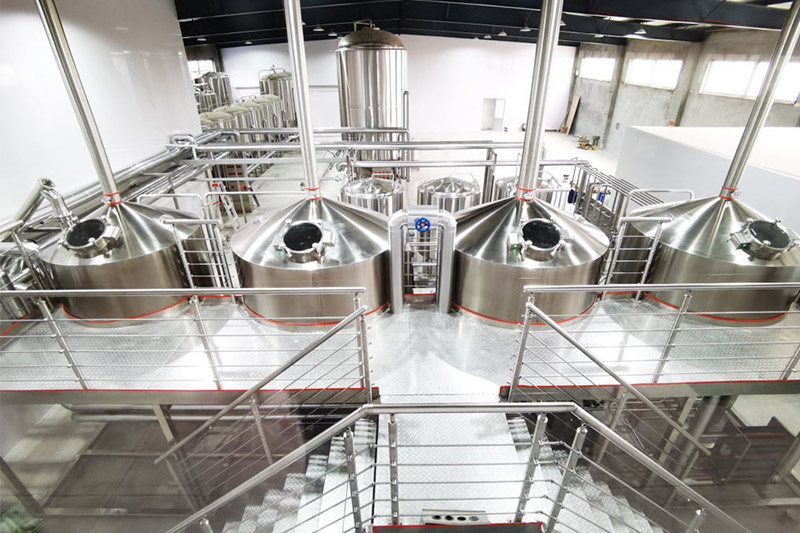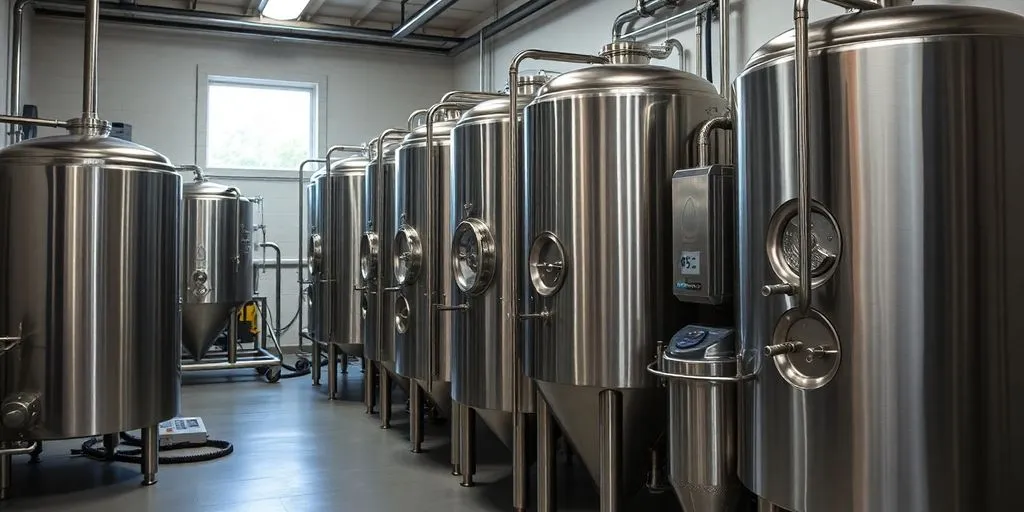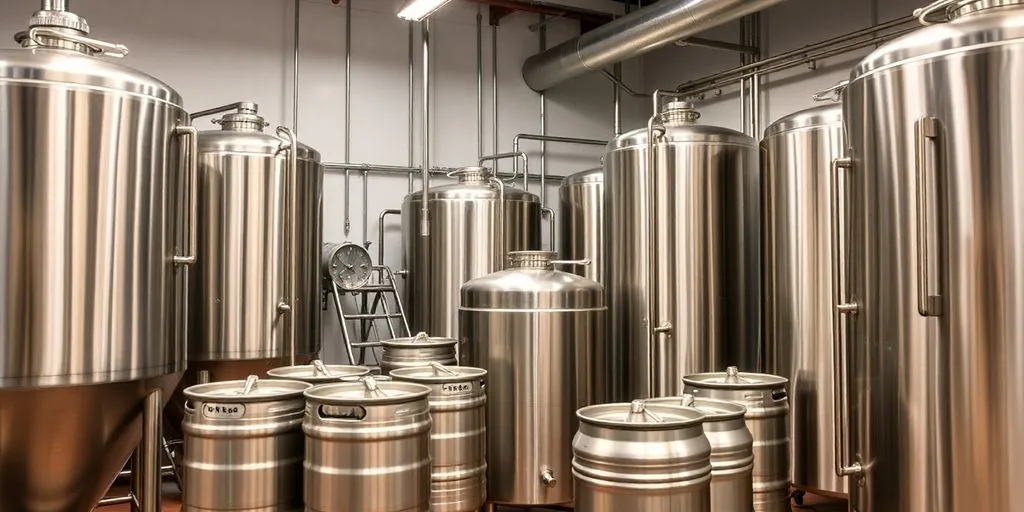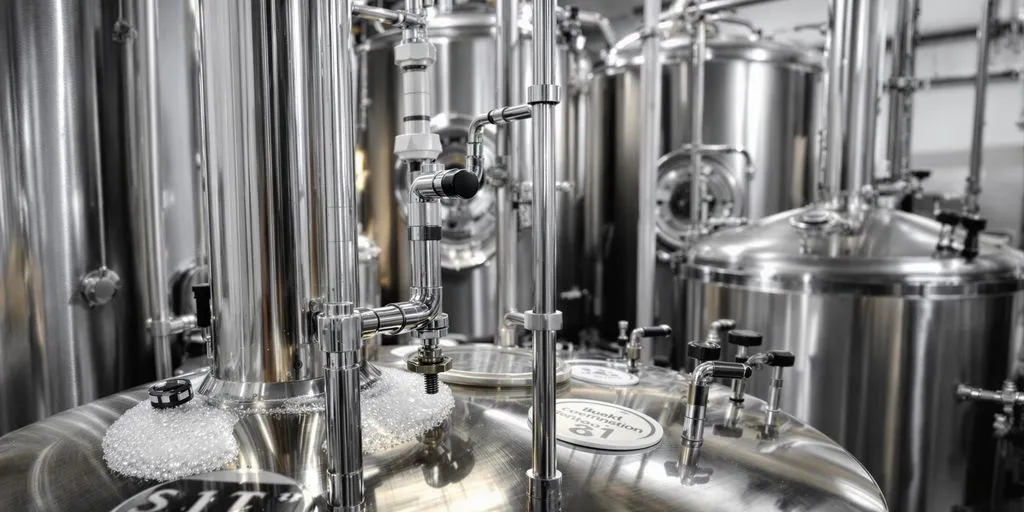Embarking on the journey of opening a nano brewery is both exciting and rewarding. As the craft beer industry continues to flourish, nano breweries have become a cornerstone for innovation and community engagement. This comprehensive guide will walk you through everything you need to know about nano brewery equipment, ensuring you’re well-equipped to brew beer that stands out in the bustling market.

What is a Nano Brewery?
A nano brewery is a small-scale brewery that typically produces beer in batches of three barrels or less. These breweries are often run by passionate brewers who are eager to innovate and experiment with unique beer recipes.
Nano breweries have gained popularity as they offer a low-cost entry into the commercial brewing industry. This allows homebrewers and small entrepreneurs to transform their hobby into a successful brewery business without the massive investment required for larger operations.
Why Choose Nano Brewing Equipment?
Choosing nano brewery equipment allows you to:
- Start Small: With lower initial costs, you can begin brewing beer commercially without significant financial risk.
- Flexibility: Experiment with different beer styles and brewing processes to find your niche in the craft beer industry.
- Scalability: Nano brewing equipment allows for easy upgrades as your brewery grows and demand increases.
- Community Engagement: Connect with local craft beer enthusiasts and build a loyal customer base.
Investing in nano brewing equipment is an excellent way to dip your toes into commercial brewing while maintaining control over your brewing operations.
Essential Equipment Needed for a Nano Brewery
To start a nano brewery, you’ll need several key pieces of equipment:
1. Brewing System
The brewing system is crucial for the beer brewing process. A typical nano brewing system includes:
- Mash Tun: Where grains are mixed with water to convert starches into sugars.
- Brew Kettle: Used to boil the wort and add hops.
- Hot Liquor Tank: For heating water used in the brewing process.
Learn more about brewing systems here.
2. Fermentation Tanks
Conical fermenters are essential for fermenting the wort into beer. They allow for easy yeast removal and can handle the pressure of fermentation.
Check out different types of fermenters:
3. Temperature Control Systems
Maintaining the right temperature is vital for brewing success. Temperature control systems ensure consistent fermentation and quality.
4. Cleaning Equipment
Proper sanitation is key in brewing. Cleaning equipment like CIP (Clean-In-Place) systems help maintain hygiene standards.
5. Additional Equipment
Other pieces of equipment include:
- Bright Tanks: For maturing, clarifying, and carbonating beer.
- Keg Filling Machines: For packaging your beer.
Explore options for bright tanks here.
How to Choose the Right Nano Brewing System?
Choosing the right nano brewing system involves:
- Assessing Brewing Goals: Determine your target production volume and beer styles.
- Budget Considerations: Balance between cost and quality. Investing in quality equipment and support from a reliable equipment manufacturer is crucial.
- Space Availability: Ensure your brewing equipment fits your space.
Partnering with a reliable equipment supplier like Micet Craft can provide quality equipment and support throughout your brewing journey.
Setting Up Your Nano Brewery: A Step-by-Step Guide
- Create a Comprehensive Business Plan: Outline your goals, budget, and marketing strategies.
- Obtain Necessary Permits: Secure a brewing permit and comply with local regulations.
- Design Your Brewery Layout: Optimize space for brewing operations and customer areas if planning a taproom.
- Purchase Equipment: Invest in essential and quality equipment.
- Install and Test Equipment: Set up your brewing system and perform test brews.
- Begin Brewing: Start with your flagship beer and refine your brewing process.

Setting up a nano brewery requires careful planning and execution. This guide provides more insights.
Equipment Upgrades: Preparing for Growth
As your brewery grows, equipment upgrades become necessary:
- Increase Capacity: Invest in larger fermenters and additional brewing equipment.
- Enhance Efficiency: Automate certain brewing processes.
- Expand Product Line: Add equipment to brew different styles like cider or kombucha.
Explore brewing equipment for expansion:
The Brewing Process Explained
Understanding the brewing process is essential:
- Mashing: Converting grain starches into fermentable sugars.
- Boiling: Boiling the wort and adding hops for bitterness and aroma.
- Fermentation: Yeast converts sugars into alcohol and CO2 in fermenters.
- Conditioning: Beer matures in bright tanks, developing flavor and clarity.
- Packaging: Filling beer into kegs, bottles, or cans.
Each step requires specific equipment and meticulous attention to detail.
Temperature Control Systems: Importance and Options
Temperature control systems are vital for:
- Consistent Fermentation: Different yeast strains require specific temperatures.
- Quality Control: Prevents off-flavors and ensures product consistency.
- Versatility: Allows brewing of various beer styles.
Options include glycol chillers, dual-stage controllers, and insulated fermenters.
Cleaning and Maintenance of Brewery Equipment
Maintaining your brewery equipment is critical:
- Regular Cleaning: Use CIP systems to clean tanks and lines.
- Preventative Maintenance: Schedule routine checks to avoid equipment failure.
- Training Staff: Ensure your team knows proper cleaning procedures.
Proper maintenance prolongs equipment life and ensures brewing success.
FAQs About Nano Breweries
A nano brewery typically produces fewer than 3 barrels per batch, while a microbrewery produces up to 15,000 barrels annually. Nano breweries are smaller and often focus on innovative brews.
Costs vary but starting a nano brewery can range from $50,000 to $250,000, depending on equipment and location.
Yes, you need to obtain federal and state permits, including a brewing permit, to operate legally.
Absolutely. Investing in scalable equipment allows you to upgrade as demand increases.
Partnering with established equipment manufacturers like Micet Craft ensures quality and support.
Essential equipment includes a brewing system, fermenters, temperature control systems, and cleaning equipment.
Summary: Key Takeaways
- Nano breweries offer an accessible entry point into the craft beer industry.
- Choosing the right equipment is crucial for brewing success.
- Essential equipment includes brewing systems, fermenters, and temperature control.
- Proper planning, permits, and maintenance are vital.
- Partnering with reliable equipment suppliers enhances your brewing journey.

Embarking on your nano brewery journey is an exciting venture filled with opportunities for creativity and community building. With the right equipment in place, you’re well on your way to brewing success.
For quality nano brewery equipment and expert support, visit Micet Craft.

